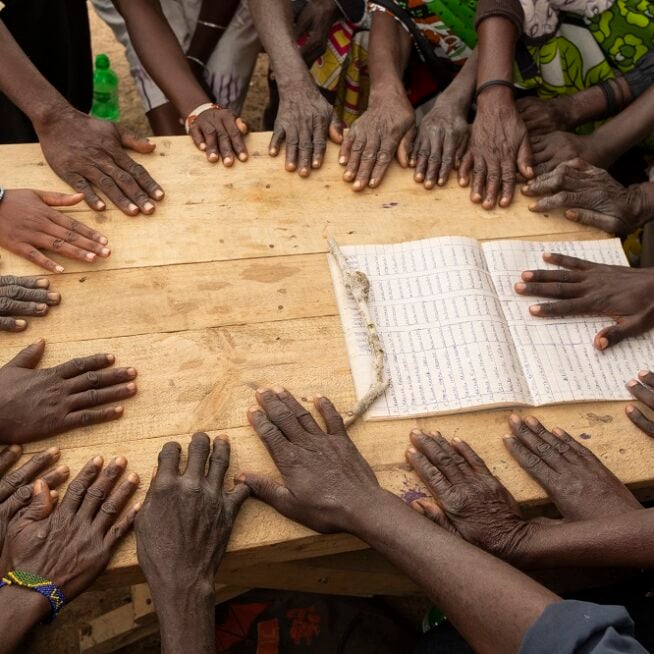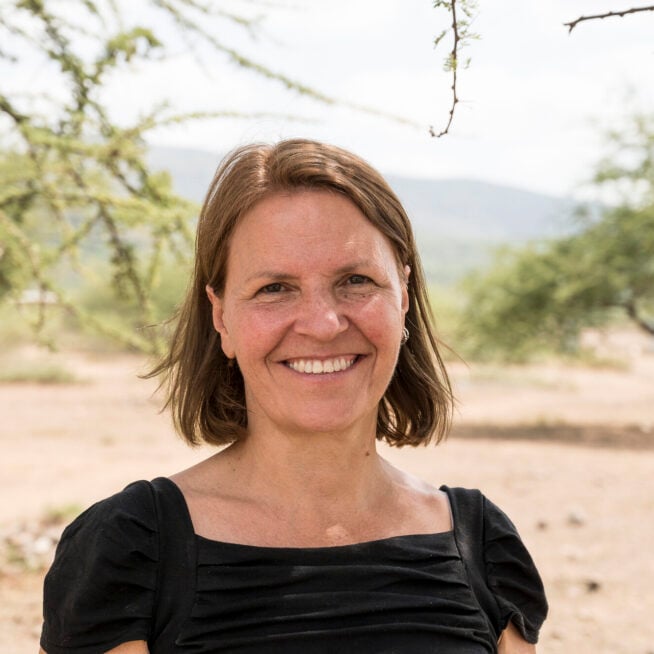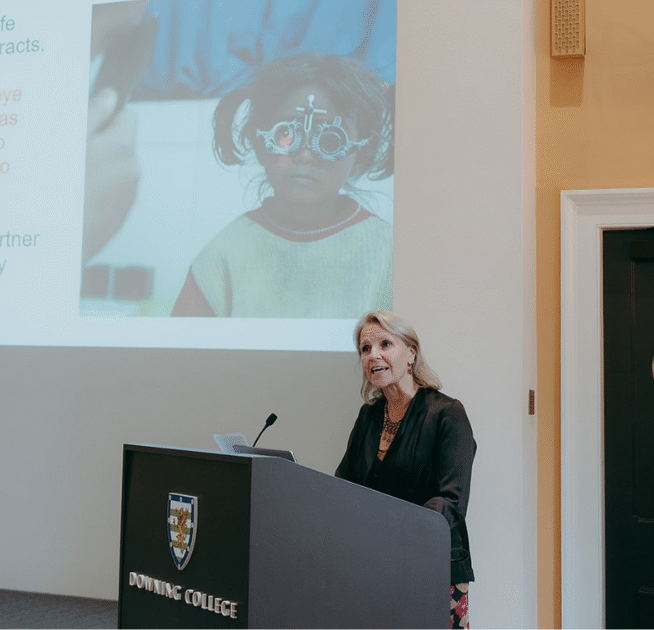Want to transform lives with us? Stay in touch and hear about our news, activities and appeals by email!
Downton Abbey star Penelope Wilton voices support for women living with fistula
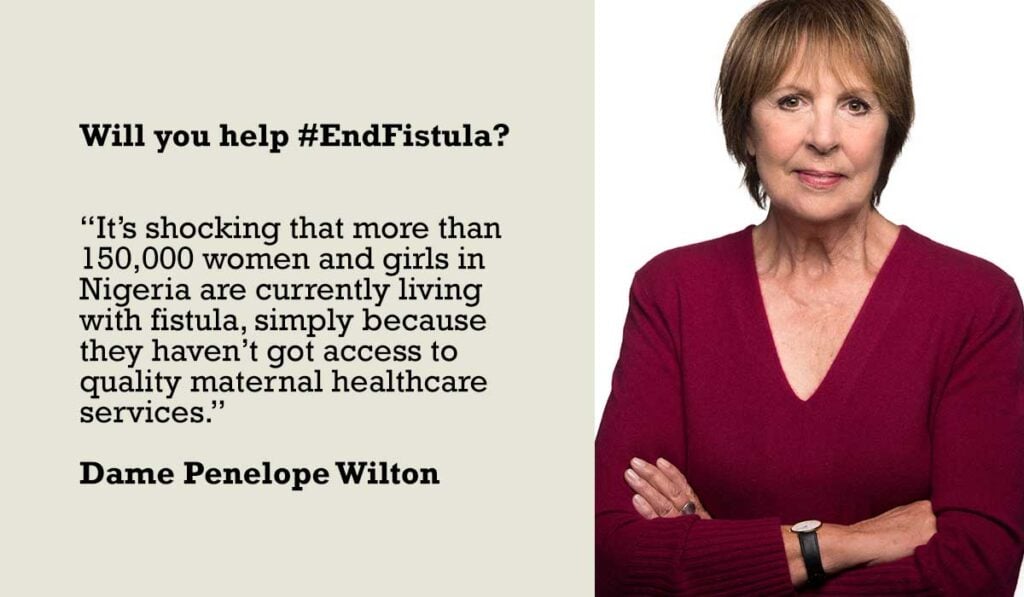
Dame Penelope Wilton has spoken out about the devastating impact of fistula on women and girls living in lower income countries, like Nigeria, ahead of International Day to End Obstetric Fistula (23 May).
The actor, a familiar face from stage, TV and film who plays Isobel Crawley in drama Downton Abbey, urges people to support CBM’s work in the world’s poorest communities and help #EndFistula for good.
“It’s shocking that more than 150,000 women and girls in Nigeria are currently living with fistula, simply because they haven’t got access to quality maternal healthcare services. This debilitating condition is leaving women and girls isolated and alone, stigmatised by their communities – and all because of a medical condition that can be treated. It’s heart-breaking to know that some women have been living with the devastating impacts of fistula for years, even decades. This is why the work of CBM and their partners in Nigeria is so vital and they need your support today, to help reach more women and girls living in some of the world’s poorest communities.”
Obstetric fistula causes incontinence, leaving women and girls prone to infection. It’s usually the result of prolonged labour and lack of maternal healthcare. The stigma around incontinence means that many women feel ashamed and isolate themselves from others, not realising that fistula is a medical condition that can be treated. The impact on their lives is devastating.
CBM is partnering with two Nigerian organisations, Survive Fistula Healthcare Foundation (SFHF) and ECWA Vesico Vaginal Fistula Centre (ECWA), to provide holistic care for women and girls in Nigeria – including women with fistula but also pregnant women and women with disabilities. This means not only providing medical treatment, such as fistula surgery, but also providing further support and rehabilitation and reintegrating women into their communities.
Olubunmi’s story
In April 2021, Olubunmi had surgery for fistula at our partner hospital in Nigeria – after a shocking 27 years living with the condition. In 1994, childbirth complications left her with a hole in her birth canal, unable to control urine.
Olubunmi used to work as a caterer, travelling to weddings and events for her work. But now she avoids public places, constantly afraid she will wet herself.
“Before I was free to work and travel but now I can’t go away from home….It is painful to have this as an adult…Nobody knows except my children and my husband.”
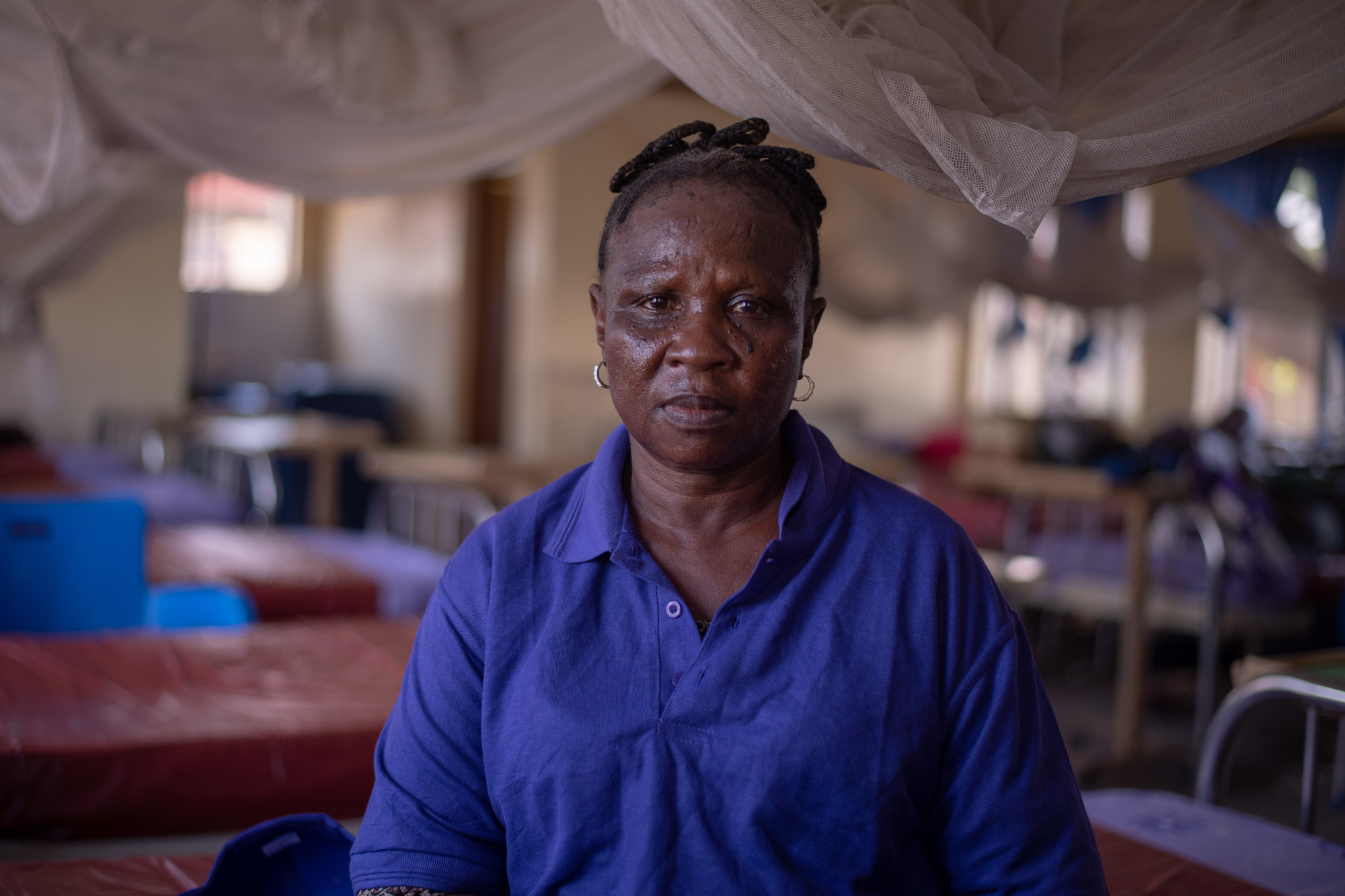
Olubunmi repeatedly sought medical help, only to be told that nothing was wrong or nothing could be done. Sadly, this is not uncommon, as fistula is not widely understood. She finally heard via an outreach programme that free treatment was available via our partner SFHF.
After an exhausting 12 hour journey from Lagos to the nearest specialist centre, she finally had a successful operation. “I will be free… I can do anything I like now. “
Find out more about CBM’s work to #EndFistula in Nigeria (open link in new tab).
And keep an eye out for our latest update from Nigeria tomorrow, on International Day to End Obstetric Fistula!
Images: 1st – Dame Penelope Wilton alongside a banner with part of her quote and call to action, ‘Will you help #EndFistula?’. 2nd – Olubunmi sitting in a hospital ward, in Nigeria.

